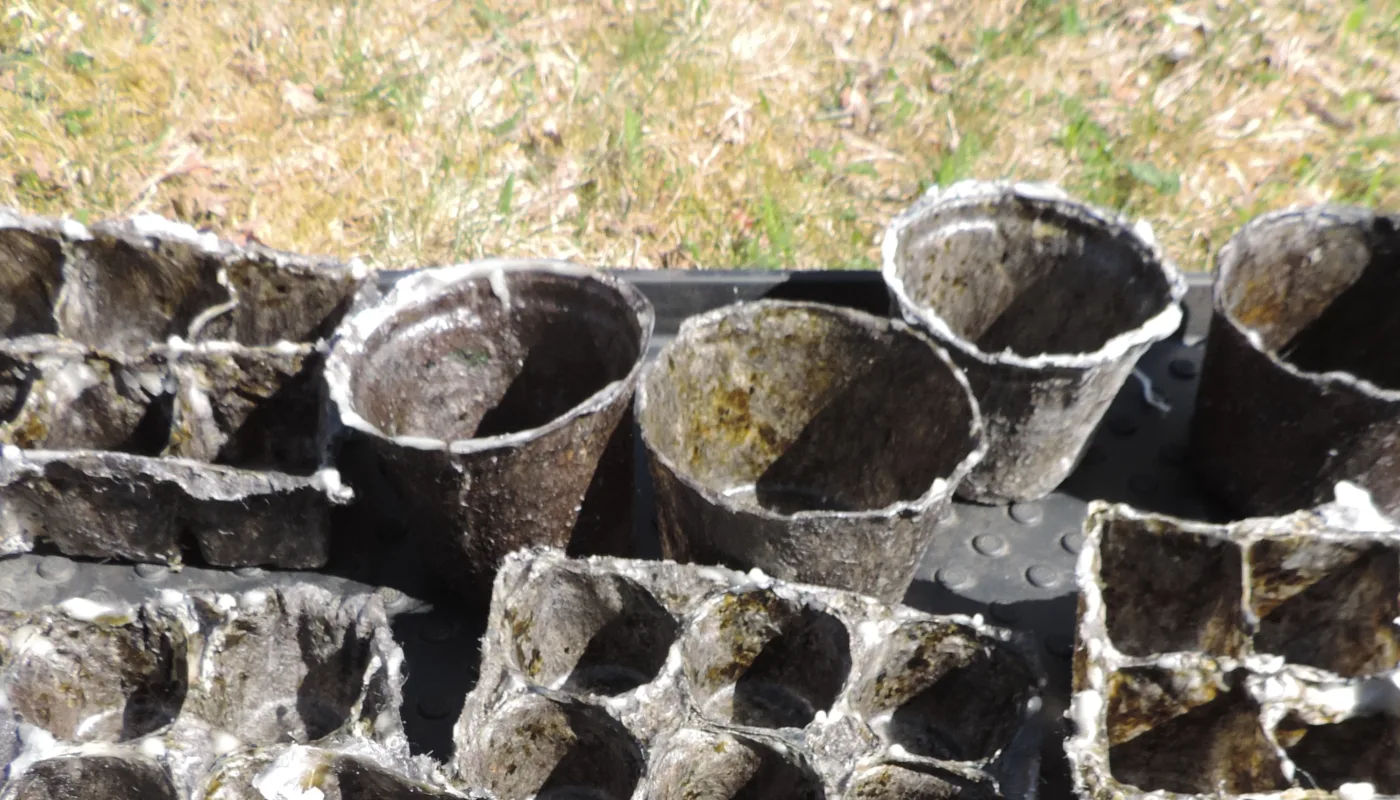Woolly Pot - reducing the use of plastic in Norwegian nurseries
Great amounts of plastic are used in agriculture and horticulture, e.g. for plant pots in nurseries. Most of the pots are thrown away and burned after use. Wool pots as a substitute for plastic are being developed and tested.

Wool plant pots as an alternative to plastic
The aim of the project is to test whether wool pots can act as a replacement for plastic pots in nurseries and with private consumers. Wool pots are developed in different thicknesses and sizes and with different biological binders to adapt to different uses.
For example, it is desirable to have pots that decompose faster when used for transplants than in the production of herbs and flowers. Shape stability and degradation rate are tested, and plant growth and well-being are recorded. The various pots are tested in a nursery as well as in experimental fields and by private growers.
Project Details
Project details
| Project owner: | Bioregion Institute AS |
|---|---|
| Project coordinator: | Kirsty McKinnon |
| Project partners: | Bioregion Institute AS, Bybonden i Bergen and Toppe Gartneri |
| Project period: |
